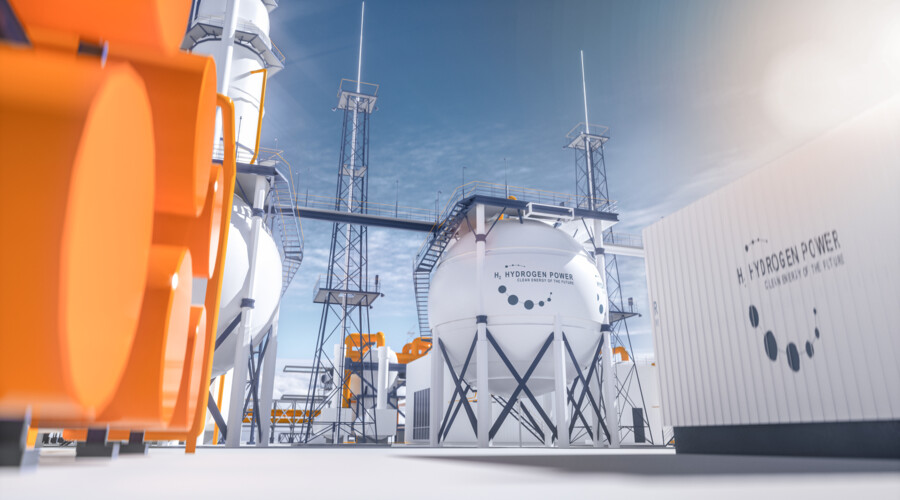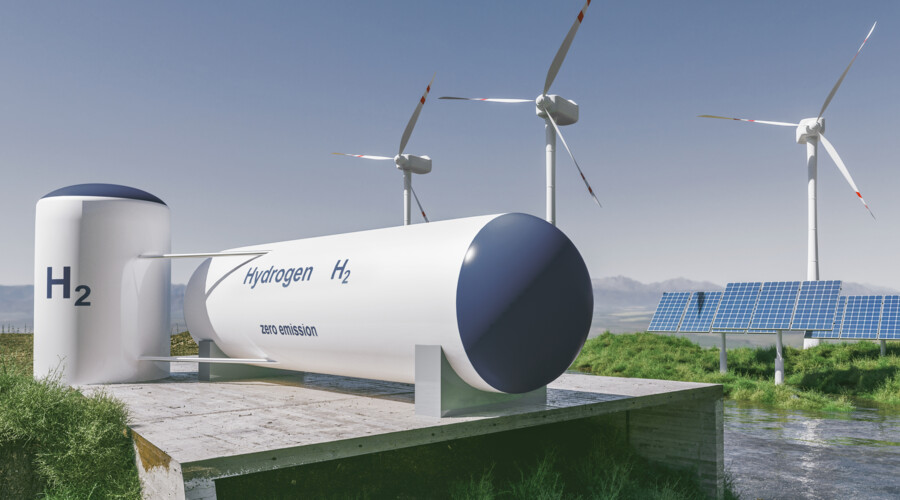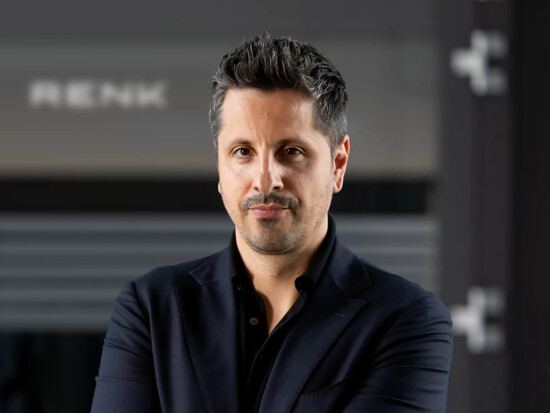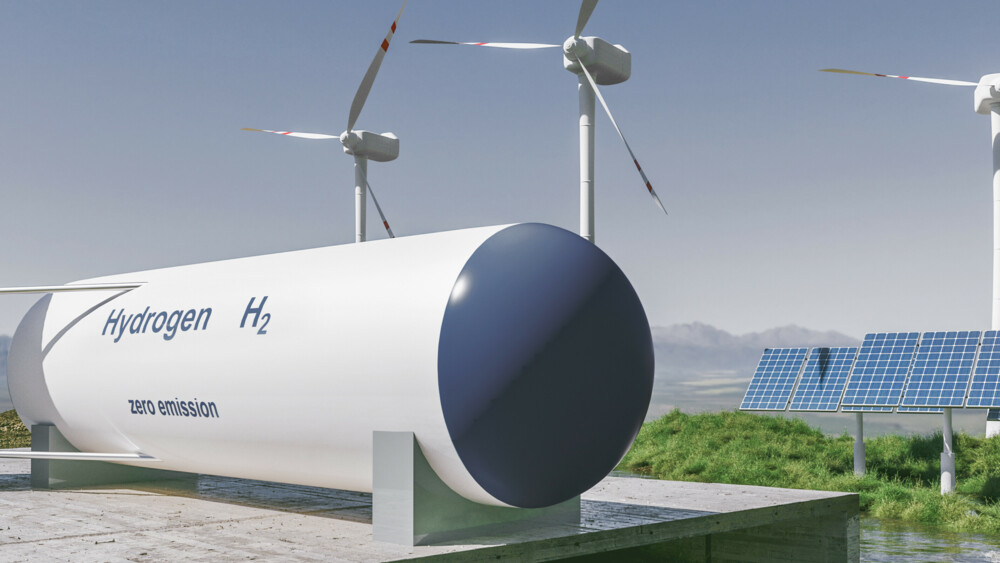What is RENK's expertise in energy transition and new energies?
Nadine Despineux: On the one hand, we are strongly positioned when it comes to solutions for greater energy efficiency. In the plastics industry, for example, our gear unit solutions make plastics processing 2.5 percent more energy efficient. This translates into savings of around half a million euros per year - an extruder typically runs for 30 years. The savings for the operator are therefore up to 16 million euros over the life cycle of our solution!
What makes this higher efficiency possible?
ND: For these applications in plastics production, we have products that allow very high torques. This means that larger plants can be realised, which in turn leads to positive economies of scale in terms of investment and operation. In addition, the gearhead allows variable speeds with high efficiency. This allows operators to run their equipment at optimum production parameters at all times.
Our gear boxes can be optimally adapted to the process in question. Take plastics as an example: In the production of plastic granules, for example, more volume can be produced with the same energy.
This was an example of how emissions and energy consumption can be reduced. What is RENK doing in the field of new energies?
ND: We are focusing on the target markets of hydrogen, carbon capture, utilisation and storage, and large industrial turbo-compressor heat pumps for district heating networks. These are all issues of great importance not only to us, but to global society as a whole. We can use our high-speed turbo gear units from the oil and gas and power generation industries because these are the very technologies that will be needed to process, transport and store new energy sources and to decarbonise. Turbo gear units typically connect drives, in particular electric motors with turbo compressors, whenever gases are liquefied for transport or storage (either at very high pressures or very low temperatures) or, conversely, processed for cooling, for example. This is exactly the key technology needed in the hydrogen field.
You mention high-speed turbo transmissions Transmission The function of a vehicle transmission is to adjust the torque and speed, and to transfer engine power to the drive wheels. . What do you mean by that?
ND: In cars, engines typically drive the crankshaft at 4,000 to 5,000 revolutions per minute. Our transmission Transmission The function of a vehicle transmission is to adjust the torque and speed, and to transfer engine power to the drive wheels. solutions achieve more than 60,000 revolutions per minute. To achieve this, our gearboxes have to be designed and manufactured with a very high degree of precision. This is our core competence and makes us one of the leading manufacturers in this segment.

What is the toughest nut to crack in hydrogen processing? Why is it such a technological challenge?
ND: To make hydrogen transportable, you need either very low temperatures - minus 253 degrees - so that the hydrogen remains liquid, or very high pressures (up to 900 bar) so that the gas can be transported in a pressure vessel. This is important because hydrogen in gaseous form has a very low density. The high speeds of the gearbox are also a result of the low density. High speeds require very, very precise design and manufacture by the manufacturer.
What does precise mean?
ND: Precise in this case means 2-3 microns. A human hair is 70 microns, a spider thread is about 7 microns. Precision of 2-3 microns has to be achieved component by component. And very few companies in the world can do that.
And why does RENK have this capability?
ND: Because we have built up and, above all, maintained this expertise over the past 150 years. Experience and continuous development are crucial.
How long does it take to build such a gearbox?
ND: The smaller ones take four to five months, the larger ones nine to eleven months.
How important is the new energy sector for RENK in the future?
ND: This market is very important for us because new energies will grow strongly at the expense of oil and gas production, thus making the decarbonisation of our industry and society possible in the first place. We are in an excellent position to take full advantage of this growth as we move into these new applications with our customers in the traditional fossil industries.
In which energy transition projects is RENK already involved?
ND: We are very proud of a major project in Germany for green steel using hydrogen. The steel industry is in the process of making its entire production carbon neutral. This is a massive reduction in CO₂ emissions through the use of hydrogen. The first prototype plants are being built. We have also been awarded the contract for the Gateway project in the small town of Alabama, New York, and have already delivered the gearboxes for the world's largest hydrogen production plant. This plant is currently under construction.
We're also working on an energy storage project in Italy. This uses CO₂ in a closed thermodynamic cycle to store energy and generate electricity when needed. CO₂ is one of the few gases that can be condensed and stored as a liquid under pressure at ambient temperature. Here too, our turbo gearboxes are used in compressors to generate the necessary pressure.
The energy turnaround can only work if all the necessary players make their contribution. And RENK, with its solutions and key technologies, is one of them. We are investing heavily in research and development to be able to supply what will be needed in the future.
Of course, our experience and expertise in technologically highly specialized products help us a great deal. Above all, however, RENK can prove that our technology has always worked reliably and precisely under the most difficult conditions. This is what sets us apart.
What appeal does this have for RENK?
ND: In general, it's about how to store energy. Because if we don't manage to store energy, we won't be able to use renewable energy efficiently and make it available in sufficient quantities. Everyone talks about wind and solar power. But we now know that we can't use it to generate enough electricity for applications like electric cars and heating in winter. So we have to get into a situation where we can generate electricity when we don't need it. And then, of course, we have to be able to store it. The storage form can be hydrogen, for example.
Today, renewable energy is generated in a decentralised way, where the wind blows and the sun shines. And that's where it has to be stored and transported. This problem didn't exist a few years ago. There were large producers with coal-fired or nuclear power stations that fed the electricity into the grid. But that is becoming less and less the case as electricity generation becomes more and more decentralised. That's why there's such a need for hydrogen or ammonia as a storage medium, for example. There will also be pipelines to transport the hydrogen from A to B.

Has the question of how hydrogen will be transported as an energy storage medium been resolved?
ND: No, there are still a number of open questions and possibilities. Existing gas pipelines could be converted and used for this purpose, or it could be transported in liquid form, for example in pressure vessels on ships. But there are no regulations on how many bar pressure must or can be in these pipelines. But the technology depends on it. Another important issue is the diffusion of hydrogen, which is influenced by many factors such as the pressure difference between the areas, the temperature and the type of material. All this needs to be regulated. And we are involved in that discussion as well.
What about carbon capture and storage? How active is RENK in this field?
ND: We are also active in the process of separating gases, e.g. separating carbon from CO₂. This is the process of CO₂ recycling. And we are also active in the process of injecting carbon dioxide into the earth. This requires high pressure, which is generated by compressors equipped with our high-speed turbo gearboxes. So we are absolutely system-relevant to the energy transition. For me, the most exciting thing about the energy transition is that the existing industry can and must make its contribution, as well as new technologies. If the two come together, then the energy transition can succeed.
What is the message for people looking for a meaningful career in industry?
ND: With its Security & Defence and Energy Transition divisions, RENK is active in two of the most relevant areas of our time. Our products make a significant contribution to making the world a safer and more sustainable place. And that is a great incentive for our employees who want to make a meaningful contribution with their work.

Get in touch with our correspondent if you have further questions.

